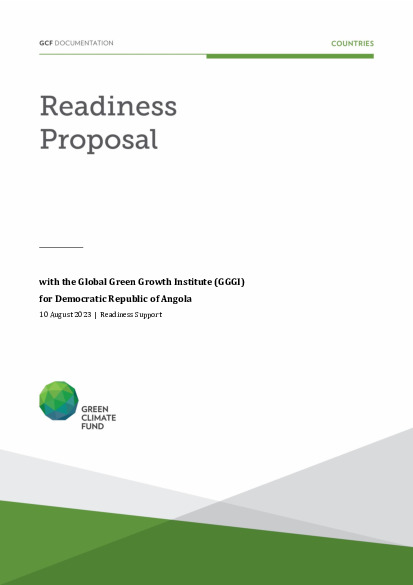Strengthening the NDA’s institutional capacity, mechanism and Country Programming for strategic engagement with GCF

Strengthening the NDA’s institutional capacity, mechanism and Country Programming for strategic engagement with GCF
According to the revised NDC (2021)1, Angola sets the unconditional target of achieving a 15% of emission reduction by 2025, equivalent to an estimated mitigation level of 39,7 million tCO2e. The total estimated cost for Angola’s identified NDC mitigation contribution through 2025 is estimated at around USD 44 billion and USD 144 million for adaptation contribution, representing a combined funding requirement of around USD 44.1 billion across sectors. However, lack of funds is the main obstacle to the development and implementation of actions in Angola, as the country has been experiencing a sharp slowdown in its economic growth for several years, motivated by the drop in oil production, with a negative impact on the internal capacity to finance all of its economic activity. The main barriers to the implementation of NDC identified and outlined in the revised NDC (2021) include:
- Limited budget from the State to create an enabling environment for resource mobilization to encourage private sector investment, leading to dilution of priorities over time. The funding issue is also a major impediment to national research and development efforts, as well as to human and institutional capacity.
- Gaps in technical knowledge in the entities responsible for preparing and approving projects, plans and programs.
- Gaps in the processes of early involvement of key stakeholders and the development of communication and public mobilization strategies.
In line with the commitment of Angola to overcome the barriers, this Readiness proposal will address the following interrelated barriers, which aligned with the gaps and challenges outlined in Angola’s revised NDC (2021):
- Barrier 1: Inadequate systems, human, technical and institutional capacity within NDA that enable them to fulfil their roles and responsibilities towards the GCF and enhance their ability to achieve their objectives.
- Barrier 2: The country has no national direct access accredited entity to the GCF.
- Barrier 3: Absence of strategic frameworks to guide GCF investment and programming of Readiness support resources, as well as a strategy for attracting private sector investment.
- Barrier 4: Limited access to climate finance due to a weak pipeline of projects and a low number of concept notes and funding proposals submitted.